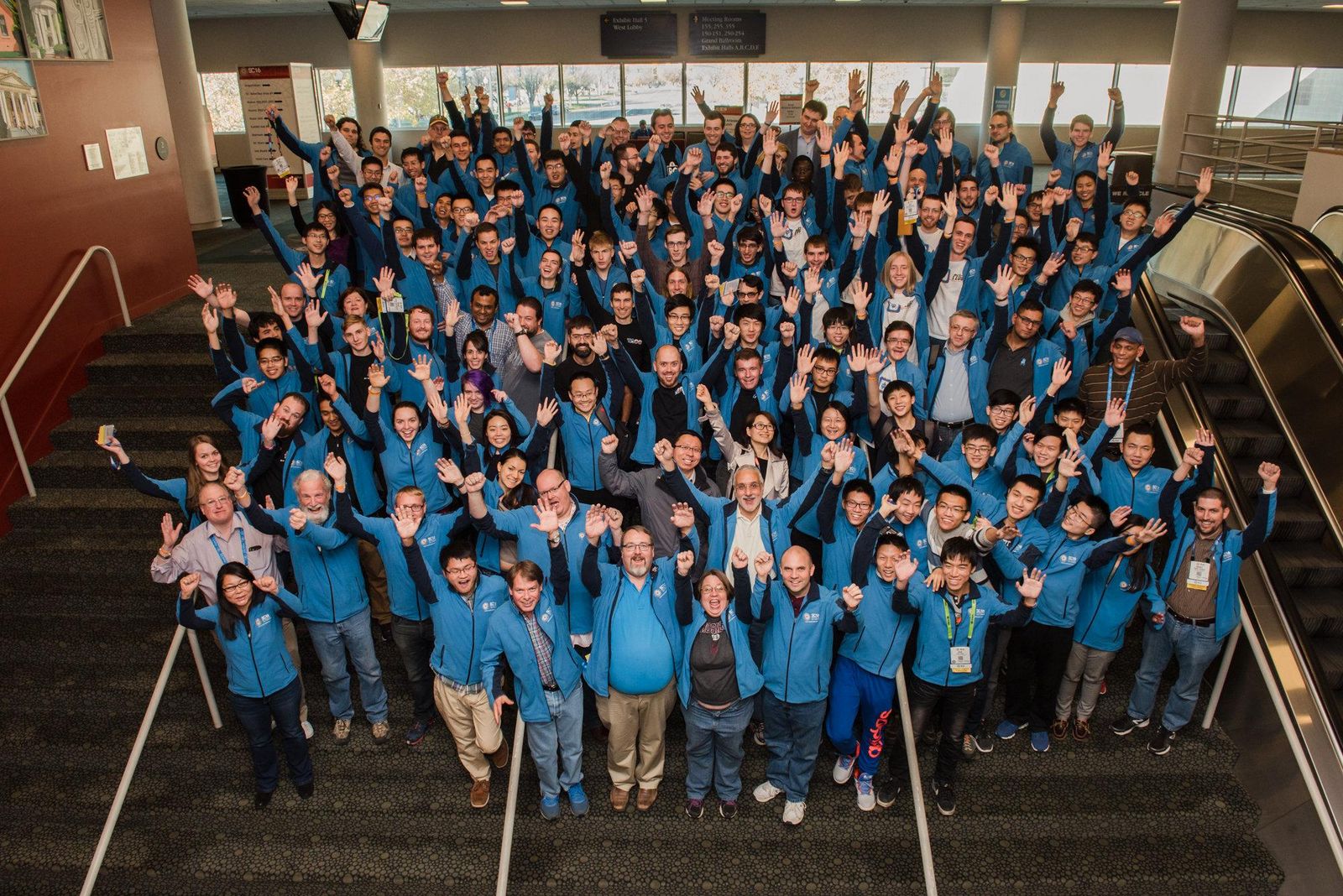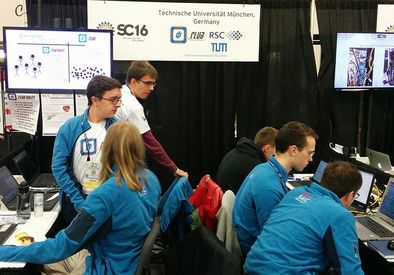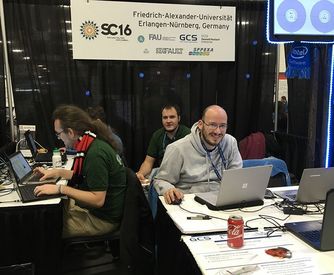NEWSFLASHES
SC16 Student Cluster Competition: Teams PhiClub and segFAUlt Celebrate "Job Very Well Done"
Newsflash –

Undergraduate teams assemble for the Student Cluster Competition at SC16 in Salt Lake City.
Copyright: SCThe 2016 edition of the Supercomputing Conference (SC) saw the hitherto largest number of student teams participating in the Student Cluster Competition (SCC), which for the 10th time was included in this annually recurring international High Performance Computing (HPC) event. In total, 14 teams had been accepted for this year's multi-disciplinary HPC challenge for undergraduate students, and among them, as the only European participants, were two teams from Germany:
• Team PhiClub of the Technische Universität München (TUM), and
• Team segFAUlt representing the Friedrich-Alexander-Universität Erlangen-Nürnberg (FAU).

Team PhiClub keeps busy in their SC16 booth.
Copyright: Sebastian Rettenberger
Team segFault works on site at SC16.
Copyright: Alexander DitterWhile eventually none of the German representatives made it onto the podium, the captains of both team PhiClub and team segFAUlt asserted that participating in this international challenge and mastering "stress situations which could easily be compared to real working scenarios" has been an awesome experience to be remembered by all team members alike.
Evidence of their ability to cope with extreme pressure provided e. g. outstanding results achieved by both teams in two particular competition components:
a) Scientific Reproducibility, a brand new component added to the SCC challenge: Here, students were requested to reproduce a research paper from SC15 rather than focus on throughput of prescribed data sets. Team segFAUlt secured 100 of 100 possible points and team PhiClub achieved 95/100.
b) The Interview: The young students from TU München, most of them being only in their 3. semester, excelled in deeply impressing the critical HPC jury with their demonstration of overall HPC knowledge. This earned them the highest possible score in this competition component, and team segFAUlt came in a no-less respectable 3rd.
For a detailed description of the students' review of their SCC adventure, please click here for the report from PhiClub of TU München and here for the summary of team segFAUlt of FAU Erlangen-Nürnberg.
Top honors in this year's SCC received China’s University of Science and Technology, which won both categories: best performance of the LINPACK benchmark application and best overall team performance. The 11 teams, completing the round of this year's SCC participants, represented the following universities:
• Huazhong University of Science and Technology, China
• Nanyang Technological University, Singapore
• National Tsing Hua University, Taiwan
• Northeastern University, Auburn University, United States
• Peking University, China
• San Diego State University, United States
• Boston University, UMass Boston, MIT, United States
• Universidad EAFIT, Colombia
• University of Illinois Urbana-Champaign, United States
• University of Texas at Austin, Texas State University, United States
• University of Utah, United States
GCS has proudly acted as financial sponsor of both team PhiClub and team segFAUlt for SCC 2016. The dedication and commitment of the students shown in the course of the preparation for the competition and throughout the challenge are much appreciated and deeply honoured. Congratulations to all students and their mentors for a job very well done!
Further information:
http://www.studentclustercompetition.us/2016/index.html